Lori Goodson, Editor
Mary Hammel, Technical Editor
Category: April 2019
In the Classroom: Matt Shea

Name: Matt Shea
School district: Frank Rushton Elementary, Kansas City, Kansas, Public Schools
City/State: Kansas City, KS
Class/content area taught: K-5 General Music
What you are most excited about with your new career: I love the fact that I get to teach such foundational knowledge in music making. Creating and participation in music is a life skill that everyone should have and I have the opportunity to hopefully have students for 6 years and build their foundation in keeping a beat to music, singing on pitch, playing classroom instruments, reading music, and creating their own music through improvisation and using the skills learned in class

What you enjoy most about teaching: I love being able to teach EVERY student that’s in the building. With it being my first year, it’s a lot to think about and at times a bit overwhelming, but I’m excited to see how my students grow under my guidance and beyond.
Ways your school/district has supported you: My building staff is SO SUPPORTIVE. Even when I subbed in the building after graduation, I knew my school was where I wanted to work. They are flexible when I need them to be, and I return the gesture whenever that is needed of me. My school principal loves music and is very supportive when I ask anything of her. My boss at the Fine Arts district level has been one of my teachers and mentors throughout my life, so working under her has such a sense of support and familiarity, which is so great! The district provides first- and second-year teachers mentors, and my mentor and I meet almost weekly discussing challenges, planning, our curriculum, building relationships and pedagogy.

Ways KSU especially helped prepare you for your new career: I believe having a hand in many things at K-State including all things band and music related, joining fraternities, and taking the classes I did. I followed a pretty normal sequence in the music education field. I don’t think I would even be an elementary teacher without taking my elementary music course with Dr. Gurgel. The way she presented information reinvigorated what it was to be a teacher and to learn music for the first time so that it was fun and engaging for students, especially college-aged kids who are still kids at heart. I appreciated the class for multicultural students and teaching by Tonnie Martinez because it opened my perspective to diverse populations, which is exactly what I am exposed to now in an urban district. I had so many supportive role models and professors at K-State, I thank and take a little something from each one, hoping to be a compassionate and understanding teacher like I was shown in my time at K-State.

Specifics about your background that make teaching the perfect fit for you: I know my grandmother was a teacher, although she wasn’t alive long enough for me to know much about her career. Although my dad did not choose teaching as a career, he is one of the best teachers I’ve had in my life with regard to being a good person, showing love and discipline, and doing the right thing. He could’ve been a teacher and probably should’ve! My sister has always worked around kids which is where I think my love of kids began. She nannied and worked in daycares, so I was almost always exposed to them. Now that I have began my teaching career, she has gone back to school and is going to receive her degree in Elementary Education in December, which I think is fitting for her too, and is student teaching in my district which ought to be…eye opening.
I think one of the biggest experiences I have which steered me toward being an elementary teacher is my 8+ years experience teaching swimming lessons for kids predominantly but going from ages 1-65. Swimming, like music, is a LIFE SKILL, and I believe is imperative for everyone to learn. Swimming, for safety, can save a life; music, for enjoyment and expression, can also save lives. One of the best things from being a swim teacher is that the activity is so physical that you can see growth in seconds and from day to day or sometimes year to year. In music, because it’s performance based, it is similar to see growth happening right before your eyes.
I am very thankful I have landed where I have.
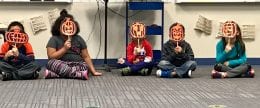 Suggestions/encouragement for new teachers:
Suggestions/encouragement for new teachers:
- Thank your teachers (and get to know them outside of the classroom). Write thank you notes too
- Always show your best work (even if it’s late)
- Do what you love and what challenges you and the money will follow.
- Steal, borrow, take pictures, pick brains of whoever you can with how to be better. There are so many teachers around that are willing to help- you LITERALLY aren’t alone
- SUBSTITUTE TEACH – this I stress. During student teaching, you may think you had great experience because you were the one in charge while your CT was right outside the room; however, the two weeks you have of doing that doesn’t mean you are already a perfect teacher. If you sub, THEN you really are the one in charge plus the added challenge of never having met the kids before. Just practice practice practice. Fake it til you make it- because if you start believing you’re the teacher, the kids will too. You can pick and choose how often you work and can be flexible, especially right after graduation because I took about a month off (which was about how long it took for my license to process) and you need that mental break after graduation. (December grad here, so you can sub in the spring and it’s perfect). Also, being in different classrooms every day, you can familiarize with the districts’/schools’ resources and figure out what you like and don’t like, you can see how other teachers write lesson plans that work for them that you may not have seen at KSU, and you can NETWORK, which leads me to…
- Networking!!! For music people, go to KMEA and, if you have the chance, Midwest if you want to go into teaching band/orchestra. I was able to meet up with one of my student teaching placements there at KMEA and schedule some time before student teaching to observe at the school and help out. Reaching out to schools in Manhattan to observe and work with the students, even if it’s not your subject, can be really beneficial. Make your name known, go up to the booths at KMEA representing school districts and introduce yourself (with firm handshake) and ask if there are opportunities to come observe in the district or shadow someone, odds are they will love the initiative you are taking and will remember your name for a potential job interview.
Don’t forget these important tasks
 While the school calendar may be slipping away, you still have plenty to accomplish in your first year of teaching. Consider these points before you make your summer plans!
While the school calendar may be slipping away, you still have plenty to accomplish in your first year of teaching. Consider these points before you make your summer plans!
- Look at your yearlong curriculum map. How much content do you still need to cover? Are you behind schedule? If so, revise your April and May lesson plans and calendars, making sure you address all of the critical content you need to cover. Prioritize! And, if you need help determining what must be covered, visit with your mentor or a colleague or administrator to get their input.
- Review your gradebook. Are there any issues? Missing assignments? Do any of your students need a little more time with you (after school, at lunch, before school) to address some academic areas of concern? You still have a few weeks left in the school year to help them succeed.
- In the last few weeks, do you have any “wish we had time” assignments? Something that you’d love to work into the schedule? Is there a way to fit them in?
- Are there items or projects or papers that need to be sent home? Use these last few weeks of the school year to review and reorganize! You may need to create folders or envelops for each student to organize materials that need to go home.
- Spend a few minutes composing some brief notes to each student’s family, addressing some of the major accomplishments their children have made through the year. It’s great to remind parents and guardians of the steps their children have taken, but it’s also good for YOU to remember those as your year comes to an end. Try to make one more personal contact with each child’s family before the end of the school year. We have a tendency to focus on the issues a student may have in class, but we need to celebrate the positives. Share, share, share!
- Create an end-of-the-year to-do list for you AND your students. It might be something as simple (and extremely meaningful) as sending a note home or it might be following up on overdue library books or money for their lunch accounts.
Check out our 15-month master’s program
 We all know you’ve made a great career choice! Now here’s another smart option for you!
We all know you’ve made a great career choice! Now here’s another smart option for you!
In only 15 months, you could earn a master’s degree from your favorite purple institution of higher education (Go, Cats!).
And what’s even better? You can do it all online, with the possibility of either a reading specialist license or an educational technology certificate as part of the degree.
Sound good? Check it out here:
You’re heading down the home stretch!
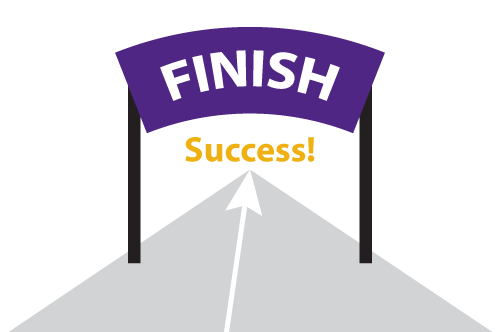 With just a little less than two months left in the school year, many of you are about to lose the title of Rookie Teacher. However, don’t overlook those last six to eight weeks. You still need to have a strong finish!
With just a little less than two months left in the school year, many of you are about to lose the title of Rookie Teacher. However, don’t overlook those last six to eight weeks. You still need to have a strong finish!
Use weekends to recharge as you set your sights on the end of the school year. Consider these ideas to help you end your year on a high note…and make your administrator thrilled to have you return for your second year:
- Now that you’ve been through several months, review your lesson plans. Make any alterations you believe are necessary to ensure the success of you and your students.
- Check with colleagues or administrators to make sure you’re aware of any end-of-year requirements—paperwork you need to have completed, special dates to put on your calendar, etc. It’s one more opportunity to make sure you’re not overlooking anything important.
- Take a deep breath and promise to enjoy your students. They’ve been your students for about eight months. Take a few seconds each day to simply look around the room and appreciate them.
- Remind yourself of at least one moment of progress or success each student has experienced.
- Take another deep breath and promise yourself to focus on the ups more than the downs of your first year of teaching. With a few weeks left, you still have time to make changes, mend fences, and make the most of their time with you!
#WeAreEdCats is the place for you this summer!
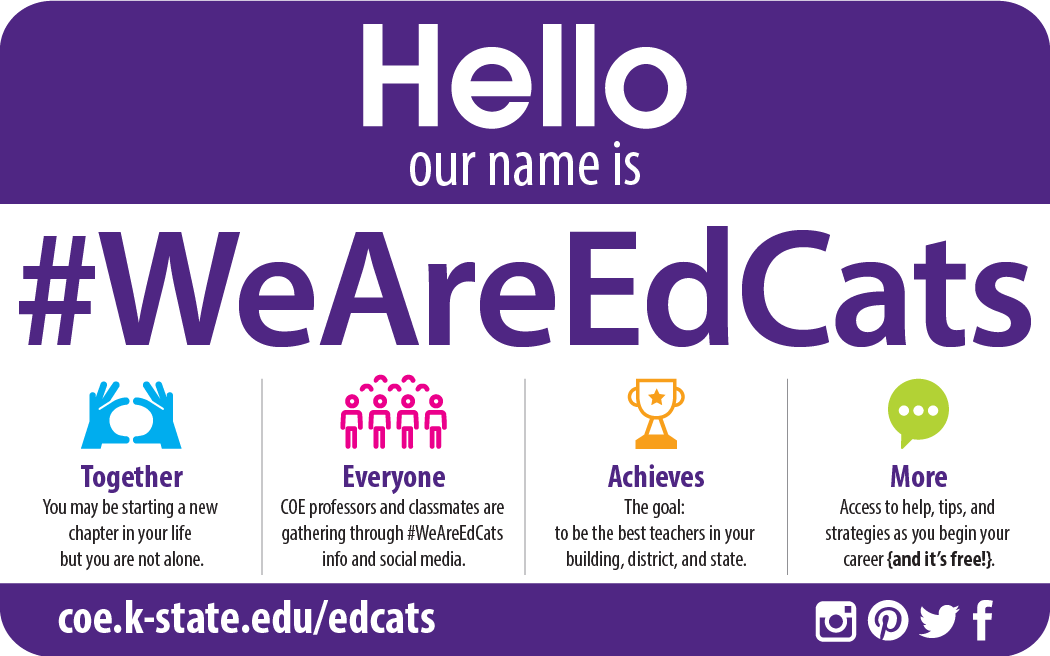 Don’t miss a thing this summer! Be a part of EdCATS!
Don’t miss a thing this summer! Be a part of EdCATS!
We want to help beginning and early career teachers like you thrive in your career! Check out #WeAreEdCats for teaching tips and to stay in touch with the COE! Check out the website at coe.k-state.edu/edcats.
Yep–your content area is the coolest!
 We asked a few of your favorite professors why their specific content is so important in schools today. Here are some of their responses:
We asked a few of your favorite professors why their specific content is so important in schools today. Here are some of their responses:
Dr. Brad Burenheide (Secondary Social Studies)—“It is the backbone of the mission of schools and the core subject matter of education for the past 2500 years in the western world.”
Mrs. Kaylee Myers (Elementary Literacy)—“At a young age my kindergartners and second graders were so excited to be in school. I loved molding them into independent thinkers who believed they could try anything and it would be okay. That learning and reading were fun!”
Dr. Sally Yahnke (FACS)—“Family and Consumer Sciences is important because it teaches Life Skills that can help students be successful in whatever career they choose. The skills learned in FCS prepares student for work life and home life. They learn to be parents, purchase and prepare nutritious meals, consumer skills, money and time management, communicating with others, decision making in real life scenarios, problem solving.”
Dr. Todd Goodson (Secondary English, Speech/Theatre, Journalism)—“To me, a high school English class is about reading and writing. We read to understand this world that exists all around us. We write to discover what we believe and how we feel and to leave some evidence behind that we were here. What could be more important?”
Dr. Sherri Martinie (Secondary Math)—“Math is applied in science courses, business course and the real world. Math is important to making sense of the world around us.”
Dr. Vicki Sherbert (Secondary English/Language Arts, Speech/Theatre, Journalism)—“Reading and writing are essential in order for our students to function as literate members of our society. They need to possess literacy skills in order to gain knowledge in other subject areas and to express their learning and understanding.”
Ms. Cyndi Kuhn (Technology)—“Technology is expected to be used at all grade level and in all content areas; embrace it!!”
Dr. Phillip Payne (Music Education)—“Music provides insight into one’s self more profoundly than any other subject. Music allows for self expression and also connects us to our school, our community, and our state (among others). Providing students with the cognitive keys necessary to access who they are as a person is one of the most influential acts we can do as music educators.”
Waiting…to hear from you!
What’s up?
Why don’t you send us a photo of you at work in your classroom! Or, do you have a question about classroom procedures? A suggestion for a topic we should address in Before the Bell? Want to add your name to our mailing list? Or provide a different email for our list? At the very least, just email and say hi!
And thanks to all of those who have emailed! We love the updates!
Early-career teachers, feel free to jump in and offer suggestions to those who are following your career choice!
We’d love to hear from you, so please email us at lagoodson@k-state.edu.
Go, COE Cats!
In the Classroom: Zach Cooper
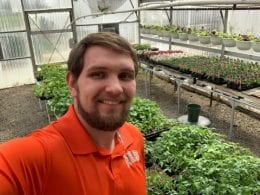
Name: Zach Cooper
School district: USD 435 Abilene
City/State: Abilene, KS
Class/content area taught:
Introduction to Ag (2 sections), Welding I, Horticulture, Greenhouse Management, Ag Fabrication
What are you most excited about with your new career? Mostly for the endless potential for where to take the program. In Ag, you control what you teach. There are plenty of projects and avenues to take, which means more flexibility. Each year you have different classes, so that makes it more unique. I’m really excited about the district I’m in. I’m the young kid, but they treat me with respect and are continually helping me in any form that they can. That was a concern because I had heard that the new teachers get picked on because of “lack of experience.” But that is not true here. They want to see me succeed. They understand that we as educators are a team and we must be there for everyone. They will walk out to my classroom (I teach in a different building) just to see how my life is going and see if there is anything they can do to help me.

What you enjoy most about teaching: The students—hands down. They bring with them everyday a passion. With that passion is energy that is contagious. And its not just their passions that make my job amazing. It is the students and who they are. They’re not just a name on a paper. Over this past year, I have had the chance to get to know the students outside the classroom—whether they’re building derby cars or raising livestock, to sports and other major commitments, each student is different, and their story is one that is incredible to hear. We’re building more connections and bridges. Getting to know them—it’s been really easy. Maybe it just comes naturally for me. We connect on a personal level; I have a professional understanding for my student. I care, and I try to help any way possible.
In what ways has your school/district supported you? If there’s been a conference I’ve wanted to go to, they’ve supported me. They’re very encouraging for me to grow and develop as an individual. The school board and interim superintendent and principal—they want to know what I want to see happen in the shop. They want to help as much as possible. I’ve felt connected with other teachers. They have lunch with me, talk about classes and stuff. When I was doing a project, the science teacher shared supplies with me. I haven’t heard anything negative.

What are some specific things you believe KSU especially helped prepare you for your new career? The College of Education and Ag Ed get us out of the classroom and into schools. By doing so, they help with the transition to be on the other side of the desk, so when we get our own classroom, we are confident in ourselves and use to the situation.. KSU gets a gold star in providing us field experiences. For example, in Block 2, I had Professional Development School visits where I taught three 11/2-hour classes. That hands on experience was tremendous, because we weren’t just sitting in a class listening to theories and strategies of education. We were actually putting the theories and strategies to actions. Whether it was Educational Psychology talking about child development and legal issues, or Core classes, or content-specific areas, we were able to apply it and see gems and opportunities in the classroom.
Are there specifics about your background that make teaching the perfect fit for you? My dad is a cop, and my mom was a warden at a corrections facility, and I grew up in a small Colorado town. With my parents’ occupation, I learned quickly that everyone is different, but they all deserve respect and deserve to have someone they can depend on. In a small town, I felt more confident because I knew everyone, and I was exposed to more opportunities to grow and become more diverse. The support system was always there. My first two years of high school I was shy, but everyone knew there was so much I could do, they continued to push and challenge me. By the time I was a senior, I was president of numerous clubs and received numerous awards for athletics. As a freshman, I wouldn’t speak to anyone out of school, and my senior year, I grew to the point where I presented a speech on world hunger on the state level to thousands of people. I’ve worked with cattle, pigs, goats, worked on wind towers, food industry, garden stores…and list goes on and on. I have been across the United States, interacted with people from backgrounds across the board, and seen another country and their way of life. I was given ample opportunities to become diverse in my experiences, build my self confidence, and communicate with others from every background possible.
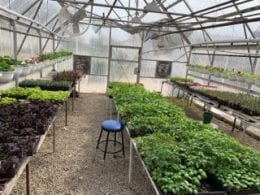
I wanted to bring my experiences back into the classroom for my students. With so many different careers that are ag related, there are connections and bridges in everything, from being a bank loan officer to the government side of things. I want to give an opportunity in my intro class for my students to see all of those. I want to walk them through every possibility—introduce them to a career and give them life skills as well. FFA is a great example of the different avenues. The organization changes with the industry., with career development events, public speaking, etc.
Suggestions/encouragement for new teachers: Make sure you set some time aside for you. Yes, the first year of teaching is important, but you’re human. Take some time for yourself. Be the initiator—find someone to help you when you need the help—other colleagues, college professors are a huge help; teaching groups at conferences. Start meeting with teachers. If they have 30-plus years of experience, imagine the advice they can share—of what to do and what not to do. Go out—leave the school building and your house. Go to basketball games. People come up to me and ask if I’m the new ag teacher. That’s confidence booster. Socialize. It’s hard and scary in a new environment, but leave the buildings and meet people. And, finally, sometimes a “no” is OK. You can say “no” as a first-year teacher. I will admit that I felt like I was obligated to say yes since I was the new guy. But if you do that all the time, you burn yourself out and you leave yourself no time to breathe.
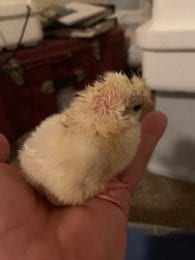
Other thoughts? Teaching is a rewarding area. But it is also challenging. In this profession (though I am just getting started), you will see so many things. Some good, and some that make your heart sick. But in the end, it is worth it–seeing those students grow and knowing you have been a part of their life. A quote I came across recently was this: “Teachers are people who start things they never see finished, and for which they never get thanks until it is too late”- Max Forman. We may not see the impact we are making every day, but when we do see it, we know we would do it all again.
Look for these in our next issue

Many of you are about to wind up your first year of teaching! Congratulations! Be sure to read next month’s newsletter for:
- Some of your favorite professors share their first-year teaching memories.
- Saying goodbye to your first class…it might be harder than you think!
- Keep an eye on August. We’ll offer some summer suggestions.